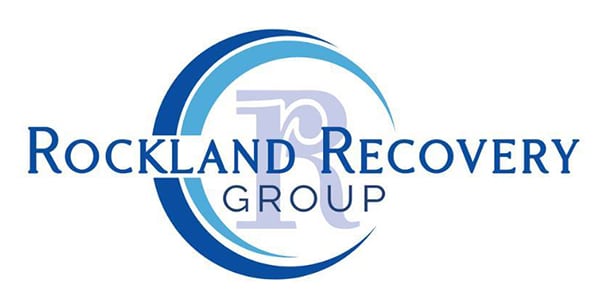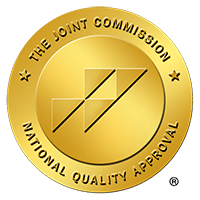Watching a loved one struggle with addiction is difficult. At Rockland RecoveryGroup in Massachusetts, we understand the challenges families face and are here to support individuals in recovery and their families.
Supporting a loved one in recovery is one of the most important things you can do. However, the road forward isn’t always well-defined. At Rockland Recovery, we understand the importance of family in helping loved ones recover. We are dedicated to supporting you and encouraging your loved ones in recovery.
The Importance of Family Support in Addiction Recovery
Family members are often the first to recognize a substance use issue in their loved ones. They are also often the most impacted by their loved one’s addiction. This puts them in a position that often leaves them torn between helping their loved ones or protecting themselves.
You don’t have to sacrifice yourself when supporting a loved one in recovery. Understanding how to support a loved one in recovery can lead to the healthiest outcome for all of you. Research tells us that individuals in addiction recovery who have a strong family support system are at a lower risk of relapse and other negative consequences of addiction.
Family support can provide the person suffering from addiction with a sense of belonging and safety. It can offer a sense of purpose and meaning. This support also helps the individual feel less alone in this journey.
In trying to help their loved one, families might unintentionally encourage drug or alcohol use by enabling harmful behaviors or denying the problem to protect themselves. Admitting addiction, having difficult conversations, and seeking addiction treatment aren’t easy. But, with the right support, this is a journey your loved one can successfully navigate with healthy support from you.
Tips for Supporting Recovery
It’s normal to feel lost, and like you’re constantly searching for answers when a loved one has an addiction. Emotions can be high. There may be hurt, resentment, and a lack of trust, making it difficult to step into a supportive role fully.
The first step in helping someone with drug addiction is to recognize how it’s affecting your own life. Consider individual or family counseling to work through the trauma and emotions you’re experiencing.
Our mental health experts, specialized in addiction treatment, can guide you through the healing process and teach coping strategies for families and loved ones.
Find Addiction Recovery Resources
It’s important to know that you’re not alone in supporting your loved one. Their recovery journey begins when they admit they have a problem and are ready to seek help. In Massachusetts, there are many great resources to help your loved one get the drug addiction treatment they need.
At Rockland Recovery Group, we offer treatment for alcoholism and drug addiction using evidence-based therapies and compassionate and knowledgeable clinical staff. You can reach us anytime at 888-299-4833 to speak with one of our care coordinators.
The Substance Abuse and Mental Health Services Administration (SAMHSA) is another wonderful resource. They offer an online directory of providers, information on addiction and mental health issues, and a 24-hour National Helpline that can be reached at 1-800-662-HELP (4357).
Education
We believe that educating families about addiction is one of the most important ways we can help them support their loved ones. Many people don’t realize that addiction is a disease that needs to be treated.
Addiction isn’t a choice, but getting help is. The more families understand what addiction is and how it works, the better able they are to support and encourage their loved ones.
Building a Support Network
Support networks are very important in addiction recovery. These groups aren’t just for the person going through treatment. Support groups for families can help them feel less isolated and more supported. They also help them better understand what their loved one is going through and how they can help.
Setting Boundaries with Addicts
Supporting a loved one during their recovery doesn’t mean family members can’t have boundaries. It’s important to be able to recognize behaviors that encourage enabling and codependency, along with not allowing yourself to be put in a position that is emotionally or physically harmful.
Self-care for caregivers
During this time, remember to take care of yourself. Families are a wonderful source of emotional support for addiction recovery, but filling this role can be mentally and physically draining. The old saying that you can’t pour from an empty cup applies here. Make time to care for yourself first so that you’re better able to offer support for your loved one.
Dealing with Relapse
Family members are often “first on the scene” when relapse happens. If your loved one has relapsed, getting them back into addiction treatment is a priority. It’s also important to avoid saying or doing anything that might make your loved one feel worse at this time.
For example, don’t refer to relapse as a failure, and avoid maliciously referring to your loved one as an addict. This isn’t the time to bring up the past, but instead, focus on what’s next and how to get back on track.
Family members can also help their loved one avoid relapse by providing them with a safe, supportive, and loving environment. Communication in addiction recovery is very important, so try to be a listening ear when they want to talk. Model positive behavior, and find new, healthier ways to spend your time together that don’t involve drugs, alcohol, or triggering scenarios.
Supporting a Loved One In Recovery in Massachusetts
Families with a loved one in recovery shouldn’t feel helpless or alone. Rockland Recovery is here to support you no matter where your loved one is on their recovery journey. We offer a Family Program that addresses the complexity of addiction and relationships and helps you work toward a healing, loving, and supportive relationship.
Contact Rockland Recovery today to learn more and get the help and support you need. Call us at 888-299-4833.






